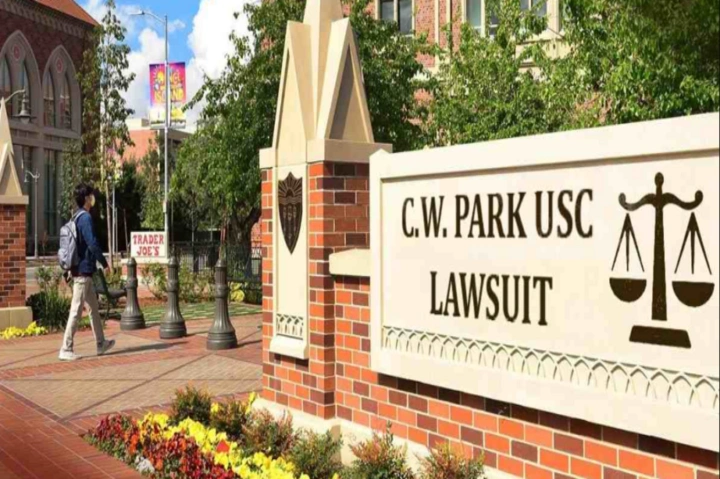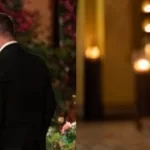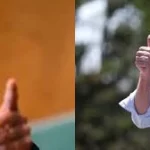The C.W. Park USC lawsuit is a critical case that has left an indelible mark on the University of Southern California (USC) community. Students, faculty, and alumni have voiced their outrage, and the case has stirred significant discussions around campus culture, sexual harassment, and the responsibility of educational institutions in handling such serious allegations. In this blog post, we will explore the complexities of the C.W. Park USC lawsuit, its broader implications for universities across the nation, and the steps we can take to ensure a safer, more accountable academic environment.
The Case That Shook USC
The C.W. Park USC lawsuit revolves around allegations of sexual harassment and the university’s response to these claims. The case has brought to light the pervasive issue of sexual misconduct in higher education and the often inadequate measures taken to address it. For university students, legal scholars, and civil rights advocates, understanding the details of this case is crucial in advocating for better policies and practices.
Background of the Lawsuit
C.W. Park, a professor at USC, faced serious allegations of sexual harassment from multiple students. The accusations included inappropriate comments, unwanted advances, and misuse of authority. Despite these claims, initial actions taken by the university appeared insufficient, leading to a lawsuit that sought justice and accountability.
Impact on University Culture
The lawsuit has had a profound impact on USC’s culture, sparking conversations about the prevalence of sexual harassment on campus. Many students and staff members have been motivated to speak out about their experiences, creating a more transparent and supportive environment. This shift indicates a growing recognition of the need for systemic change within academic institutions.
Outraged Students and Staff
The C.W. Park USC lawsuit has unified students, staff, and alumni in their demand for justice and improved policies. Protests, petitions, and open forums have become common as the university community rallies together. This collective outrage has put significant pressure on USC’s administration to address the allegations more effectively and implement meaningful reforms.
Legal Ramifications
The lawsuit has also drawn attention from legal scholars, who see it as a landmark case in the fight against sexual harassment in higher education. It highlights the legal responsibilities of universities to protect their students and staff, and the potential consequences of failing to do so. The case serves as a precedent for future legal actions and underscores the importance of robust legal frameworks in combating sexual misconduct.
Sexual Harassment in Higher Education
Sexual harassment remains a pervasive problem in colleges and universities, with many cases going unreported due to fear of retaliation or disbelief. The C.W. Park USC lawsuit sheds light on the systemic issues that enable such behavior and the urgent need for comprehensive policies that prioritize the safety and wellbeing of all university members.
Accountability and Transparency
One of the key lessons from the C.W. Park USC lawsuit is the importance of accountability and transparency in handling allegations of sexual misconduct. Universities must adopt clear procedures for reporting and investigating claims, ensuring that all parties are treated fairly and that justice is served. This includes providing support resources for survivors and holding perpetrators accountable for their actions.
Steps Toward a Safer Campus
In response to the lawsuit, USC and other universities must take concrete steps to create a safer campus environment. This involves implementing thorough training programs on sexual harassment, establishing clear reporting mechanisms, and fostering a culture of respect and inclusivity. By taking these actions, universities can prevent future incidents and build a community where everyone feels safe and valued.
Legal Scholars’ Perspective
Legal scholars view the C.W. Park USC lawsuit as a critical case study in understanding the complexities of sexual harassment law in academia. The case highlights the challenges of balancing due process with the need to protect victims and maintain a safe learning environment. Scholars argue for the development of more nuanced legal frameworks that address these issues effectively and promote justice.
Civil Rights Advocacy
Civil rights advocates have also played a significant role in the aftermath of the C.W. Park USC lawsuit, pushing for stronger protections against sexual harassment in higher education. They emphasize the importance of holding institutions accountable and ensuring that all students and staff can pursue their education and careers without fear of harassment or discrimination.
The C.W. Park USC lawsuit is a pivotal case that has prompted essential discussions about sexual harassment, accountability, and campus culture. For university students, legal scholars, and civil rights advocates, it serves as a powerful reminder of the work that still needs to be done to create safer, more inclusive academic environments. By learning from this case and advocating for meaningful change, we can help ensure that future generations of students and staff are protected and supported.
Call to Action
To stay informed and contribute to the ongoing efforts to combat sexual harassment in higher education, consider joining advocacy groups, attending university meetings, and supporting policies that promote transparency and accountability. Together, we can make a difference and create a safer, more just academic community.
—
By incorporating these elements into our understanding of the C.W. Park USC lawsuit, we can better grasp the complexities and significance of this case. Through continued advocacy and awareness, we can work towards a future where sexual harassment is no longer tolerated, and all individuals can thrive in a safe and supportive environment.
Understanding the C.W. Park USC Lawsuit
Background of the Case
C.W. Park, a former professor at USC, filed a lawsuit against the university citing wrongful termination and a hostile work environment. The case has garnered significant attention due to its allegations of sexual harassment and institutional negligence.
Key Allegations
Park’s lawsuit claims that the university failed to properly address his complaints about harassment and that his termination was a retaliatory action. These serious accusations have raised questions about the internal policies and culture at USC.
Legal Proceedings
Since its filing, the lawsuit has undergone several legal proceedings. The case’s developments have been closely watched by those within and outside academia, shedding light on the legal intricacies involved in such disputes.
Academic Disputes and Their Implications
The Prevalence of Sexual Harassment in Academia
Sexual harassment is an ongoing issue in academic institutions, affecting not only students but also faculty members. The Park case underscores the need for effective policies and a supportive environment to address such incidents promptly.
Institutional Accountability
The allegations against USC have sparked a broader discussion about accountability within universities. How do institutions handle complaints? Are there adequate measures to protect against retaliation? These are crucial questions that the lawsuit brings to the forefront.
Impact on University Reputation
High-profile cases like the C.W. Park USC lawsuit can tarnish the reputation of academic institutions. Universities must balance maintaining their public image with ensuring justice and support for victims of harassment.
Reactions from the University Community
Outraged Students
Students at USC have expressed their outrage over the allegations, organizing protests and demanding transparency from the administration. Their activism highlights the growing role of students in holding institutions accountable.
Staff and Faculty Responses
Faculty members have also voiced their concerns, calling for a thorough investigation and better policies to prevent future incidents. The case has led to discussions about power dynamics and the need for a safer work environment.
Alumni Reactions
USC alumni have shown solidarity with Park and other victims, emphasizing the importance of upholding the university’s values. Their involvement demonstrates the lasting impact of such cases on the broader university community.
Navigating the Complexities of Academic Disputes
Legal Challenges
Academic disputes often involve complex legal challenges, including issues of employment law, civil rights, and institutional policy. Understanding these challenges is crucial for anyone involved in such cases.
The Role of Legal Scholars
Legal scholars play a vital role in analyzing and interpreting cases like the C.W. Park USC lawsuit. Their insights help shape the broader discourse on how academic institutions should handle similar disputes.
Future Implications
The outcome of the lawsuit could set a precedent for future cases, influencing how universities across the country address allegations of harassment and wrongful termination.
Sexual Harassment and Holding People Accountable
Changing Policies
In response to high-profile cases, many universities have started revising their policies on sexual harassment and employee conduct. These changes aim to create a safer and more supportive environment for all members of the academic community.
The Importance of Training
Training programs for staff and faculty are essential in preventing harassment and ensuring proper handling of complaints. Such initiatives can help foster a culture of respect and accountability within academic institutions c.w. park usc lawsuit.
Supporting Victims
Providing support for victims of harassment is crucial. C.W. park usc lawsuit Universities must offer resources such as counseling, legal assistance, and safe reporting channels to help victims feel secure in coming forward.








